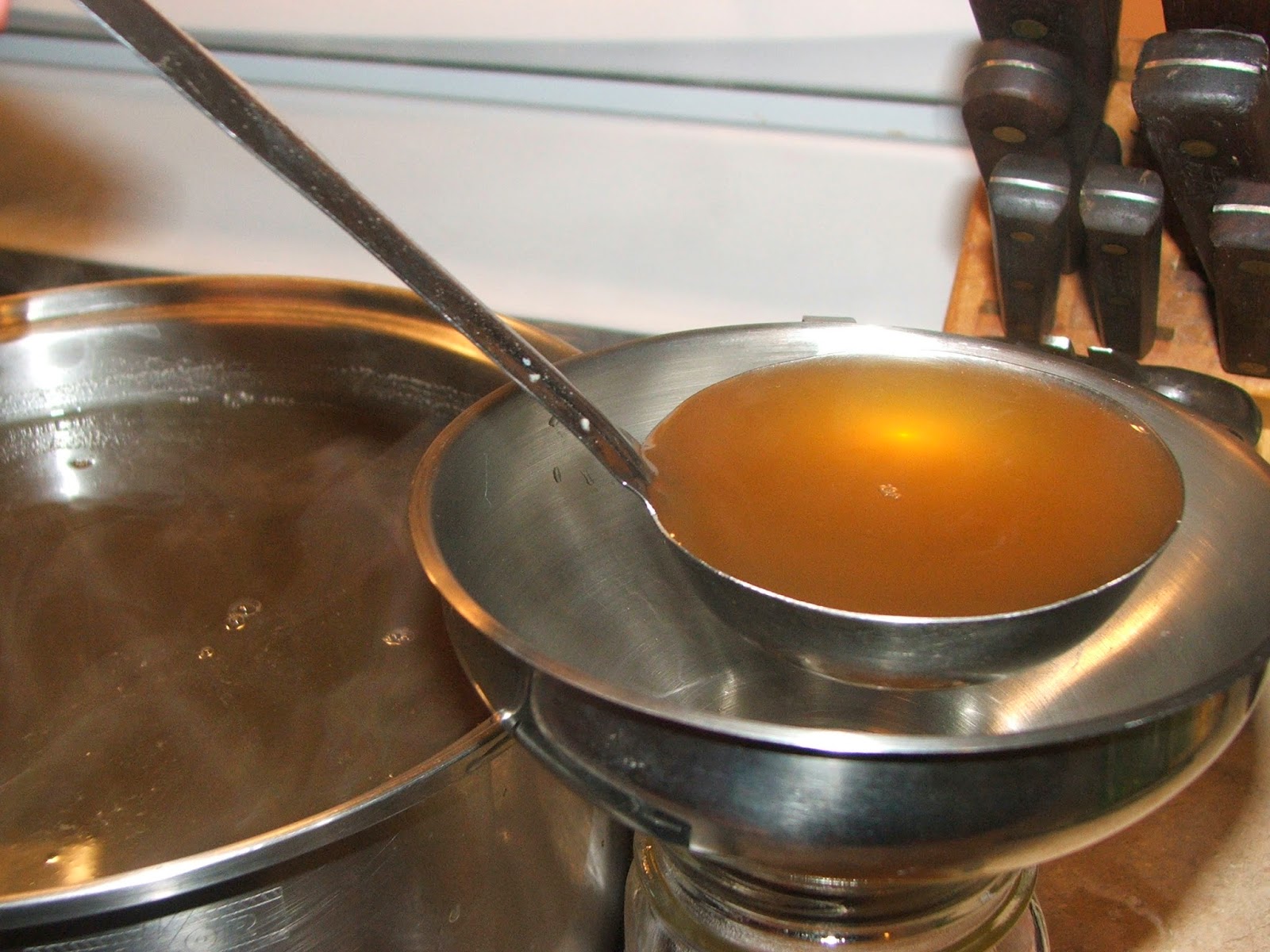Wild Honeysuckle Syrup
When I was growing up, honeysuckle blooms were so much fun... they meant summertime to us! They smelled so very sweet and we'd pick them and ever so slowly and carefully pull the stamens out and suck off the drop of tasty nectar from each one. Sweet and sticky and yummy!
My parents were always trying to get rid of honeysuckle... I never understood this as a child... it was so pretty and smelled so good... and gave us a delicious summertime snack! But, as we found out, honeysuckle is prolific... invasive really. So Daddy chopped it down, pulled it up, anything he could do to rid our yard of this invasive vine. At my grandmother's house, there was always a huge honeysuckle vine growing just outside... and up the side wall of the outhouse... made visiting that smelly place much sweeter!
When Mr. G and I moved back to the country a few years ago, we found we had honeysuckle growing near our front deck... being hardened against it as a child, I immediately began pulling it up to rid our yard of its invasive nature... Mr. G liked the stuff! He begged me to keep it! So we kept one small vine, with my warning to him that it would take over the porch... it has! But it smells so lovely this time of year... takes me back to barefoot, lazy, summer days with my siblings and cousins wandering the woods in the heat of summer, wading the creek and "falling in" to cool off... climbing trees, making "playhouses" underneath the pine trees with moss for our carpets and beds, and picking honeysuckle blossoms to suck the sweet nectar from them.
Since we now have a massive honeysuckle vine attached to our front deck and it showers us with its delicate, sweet-smelling blossoms several times each summer, I decided that SURELY honeysuckle has some usefulness... so I began scouring the internet and books to find out.
Guess what? Honeysuckle is indeed a useful, beneficial plant!
According to WebMD, honeysuckle (or as it is sometimes called, woodbine) "is used for digestive disorders including pain and swelling (inflammation) of the small intestine (enteritis) and dysentery; upper respiratory tract infections including colds, influenza, swine flu, and pneumonia; other viral and bacterial infections; swelling of the brain (encephalitis); fever; boils; and sores. Honeysuckle is also used for urinary disorders; headache, diabetes, rheumatoid arthritis, and cancer. Some people use it to promote sweating, as a laxative, to counteract poisoning, and for birth control. It is sometimes applied to the skin to reduce itching and inflammation."
From BellaVista Farm... honeysuckle medicinal benefits:
- clears toxins
- kills or inhibits germs
- coughs and asthma
- natural antibiotic used for staph or strep
- reduces fever and heat in the body
- for reducing ulcers, sore throats
- clears congestion
- used for acute symptoms NOT chronic symptoms
- reduces rashes from poison oak
- cuts that have become infected
- tea used as an eye wash
- headaches
- helps nausea and vomiting from Hepatitis C
A favorite of ours is Wild Honeysuckle Syrup... it's delicious as a sweetener for tea and soothes a cough and congestion when you have a cold or the flu...
Here's how I make it...
First I pick honeysuckle blossoms when they're full and sweet smelling... if a few leaves get mixed up in them, no problem, they're good too, just not as sweet as the flowers (just no berries, they're toxic).
2 cups of honeysuckle blossoms
4 cups water
1 cup honey
In a saucepan over high heat, bring the water to a boil, stir in the honey suckle and reduce heat, simmering for 10 minutes. Turn off heat and strain. Return to warm pot and stir in the honey until it is dissolved.
Now... once you've done this, you can...
1. Store your syrup in a lidded jar in the fridge for up to a month.
2. Freeze it in ice cube trays, then store the cubes in a plastic bag in the freezer for up to 6 months.
or
3. (which is what I do because I make more than 2 cups worth of blossoms at a time) Can it!
I heat my pint (or half pint) canning jars to boiling to sterilize them and I keep them HOT... then I simmer my lids and rings and keep them hot. Once I dissolve the honey into the warm honeysuckle "tea" I then ladle the mixture into my hot canning jars, twist on the hot lids and set them on a folded dishtowel on the counter to cool and seal.
This is the only recipe I make that I DO NOT process in a boiling water bath or pressure canner... and here's why I don't...
There is a large amount of honey in this recipe... honey is a natural preservative and never goes bad.
Boiling the mixture, in my opinion, would kill the benefits of the honey in the syrup, I just heat it up gently.
If your jars and your lids are HOT and the liquid is hot, the jars will seal as they cool on the counter.
If it would make you feel better, and "safer" to do so, you could process the jars in a boiling water bath for 10 minutes. I prefer not to so I keep all the benefits of the honey as well as the honeysuckle.
To use this mixture for a cold or cough, take 1 ounce every 4-6 hours. Do not give to infants or children under 2 years of age.
Now, just so you know, I am not a medical professional, so must add a necessary disclaimer to using this recipe as a remedy... we use it for coughs and colds, but use it yourself at your own risk. Thanks.









0 Response to "Wild Honeysuckle Syrup"
Post a Comment